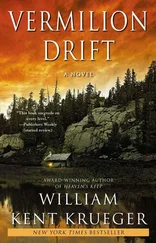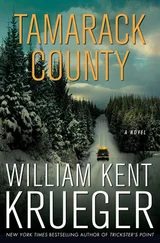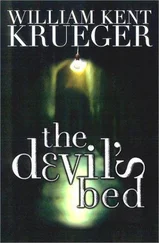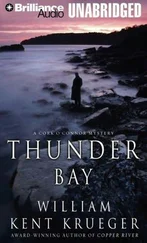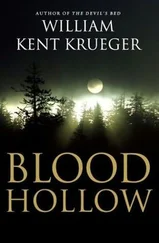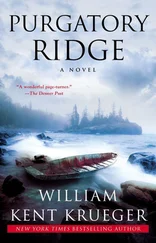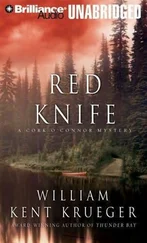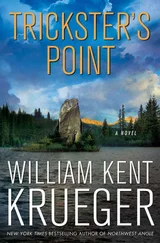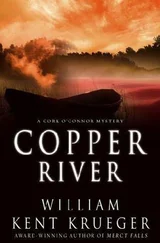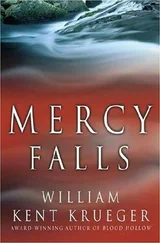The baby was still crying. Cork hobbled to where the wall fell straight down to the water. In the lake, Jenny was holding the child and stroking as best she could for another island several hundred yards distant.
Cork shouted, “Jenny, come back! He’s gone!”
She paused and cried above the baby’s wails, “What?”
Cork kept it simple. He called out, “We’re saved.”
TWENTY-FOUR
They returned Amos Powassin to his home on Windigo Island. Once Jenny and Cork had told their story, the blind man had been mostly silent. On his weathered wooden dock, before Cork and the others left for Young’s Bay Landing, Powassin offered some parting advice, directed mostly at Stephen.
“Remember what I told you. In all that’s good, the possibility of evil. And in evil, the possibility of good. There’s gonna be a lot of people try to tell you otherwise, Makadewagosh. Don’t you listen to ’em.”
“I won’t, grandfather,” Stephen promised.
Then the old man’s sightless eyes swung in Cork’s direction. “Goes for you, too.”
“Migwech,” Cork said, thanking the old man in Ojibwe.
To Jenny, Powassin said, “A bird sheds a little feather, that feather comes to rest where Kitchimanidoo always meant for it to be. Nothing in all creation happens by accident. Granddaughter, you take care of this little feather that’s come to rest in your hands.”
“I will, grandfather.”
The old man stood on the dock a long time, and although he could not see them, his face turned as if watching them until they rounded a point on Windigo Island and were lost to him.
Deputy Sheriff Tom Kretsch awaited them at Young’s Bay Landing, along with a small gathering of other residents of the Angle. Bascombe had radioed ahead, reporting the gist of the situation. When Bascombe’s launch pulled up to the dock, Kretsch helped everyone out and took a good look at the baby, who lay awake but quiet in the wicker basket.
“This is him, eh?” The deputy wore no uniform. He was dressed in jeans and a rugby shirt. He glanced at Jenny, who held the basket. “You the one who found him?”
“Yes.”
“Seth radioed that you found a dead girl, too.”
“That’s right.”
“Murdered you think, is that correct?” Kretsch didn’t try to hide his skepticism.
Cork stood behind Jenny and the baby. He said, “What was done to her she didn’t do to herself, Deputy.”
Which earned Cork a long look of appraisal from the man.
Kretsch could have been fifty-five or thirty-five. He had one of those boyish faces that would never age. He was just under six feet tall, handsome, with a thick shock of wavy brown hair and blue eyes that had an enviably uncomplicated look about them. There was a leanness to his body and a firmness and definition to his muscles that suggested he’d always been athletic. Bascombe had told Cork that Kretsch was the only official law enforcement on the Angle, and he was pretty much part-time.
“You’re O’Connor?” Kretsch asked.
“Yes. Cork O’Connor.”
“And you saw this dead girl, too?”
“I did.”
“And you’re sure it wasn’t the storm that killed her?”
Cork said, “Tom, is it?”
Kretsch said, “Tom’ll do.”
“Tom, I was a deputy and a sheriff for nearly twenty years. I know a murder victim when I see one. I can tell you without a doubt it wasn’t the storm that put a bullet through that girl’s forehead.”
Kretsch chewed on that piece of information and seemed willing to swallow it. He said, “This was on one of the islands out there on the Canadian side?”
“That’s right.”
“Out of my jurisdiction, but I think we ought to have a look before I alert the provincial police in Kenora. Can you find this island again?”
“I’m sure I can.” Cork nodded toward the deputy’s empty belt. “When you go, you ought to take a sidearm at the very least. A good rifle would be better.”
“Why’s that?”
“There’s a man out there with a scoped rifle that looked to me to be a Weatherby. Could be he killed the girl. In any case, judging by his reaction to our presence on that island, he won’t take kindly to us coming back.”
Kretsch looked at the baby in the basket in Jenny’s hands, and in his uncomplicated eyes was the very simple presence of great compassion. “Tough way to start a life.” Then he said to Jenny, “I’ve let Lynn Belgea know what’s up. I think you should take this little fella to her place and have her look him over. When your father and I get back from checking out this dead girl, we’ll figure what to do with him. Probably have to talk to county social services down in Baudette. In the meantime, are you okay taking care of him?”
“Yes,” Jenny said.
“Babs,” he said to a woman standing near him, “can you get these folks over to Lynn’s place?”
“No problem, Tom.” She lifted her hand and said by way of introduction, “Babs Larson.”
Kretsch turned back to Cork. “You got something more than that swimsuit to put on?”
“Not at the moment.”
“You look about my size. I suppose I can rustle up something for you. How about shoes?”
Cork shook his head, then showed Kretsch his wounded soles.
Kretsch whistled. “Let’s go to my office and tend to those feet. I probably can spare you a pair of sneakers, if you can tolerate wearing something. Then we’ll have a good long talk. Seth, you mind coming along?”
“Fine by me,” Bascombe replied.
Cork turned to Stephen and Mal. “Why don’t you two wait here, at that grill across the road. When Tony Ebnet comes in with Annie and Aaron, get him whatever he wants to eat, and yourselves, too, then order something to go for everybody else, okay?”
Stephen seemed uneasy about deserting the others, but Mal clapped him on the shoulder and said, “Remember, son, an army moves on its stomach.”
That was all the encouragement Stephen needed. “I’m starved,” he said. “Let’s go.”
Kretsch had a small place near Young’s Bay Landing, a little square of a house painted green. There wasn’t much furniture, and the clutter made it clear that this was the home of a bachelor. Kretsch had Cork and Bascombe wait in the living room, then he disappeared for a few minutes. He returned with a pair of baggy khakis, an old green Henley shirt, white socks that could have used a good soak in bleach, a pair of oil-stained canvas boat shoes, and a battered canvas hat. He also had some gauze pads, a roll of adhesive tape, and a tube of Bacitracin ointment.
While Cork tended to his feet, Kretsch said, “That’ll keep those cuts from getting infected until we can get you looked at professionally.”
“The cuts are nothing. I’m more interested in getting some answers,” Cork told him.
When Cork was dressed and had slipped on the socks and boat shoes and succesfully tested his ability to walk, Kretsch said, “Let’s go into my office.”
Which turned out to be a small, fishing-gear-filled room off the kitchen. His desk was cluttered with lures. His walls were hung with stuffed and mounted muskies and northerns. Kretsch sat in the chair behind his desk and indicated that Cork should take the chair opposite him. Cork lifted a multibarbed Rapala Husky Jerk from the chair seat and set it on Kretsch’s desk.
“Sorry,” the deputy said. “I don’t get a lot of visitors here.”
Cork nodded toward the lure and said, “Don’t think you’ll catch many with that.”
Bascombe laughed and leaned against the wall, near enough to the open mouth of a mounted muskie that it looked as if the big fish was going to feed on his head. He said, “They have any luck locating the other folks missing in that storm?”
Читать дальше

